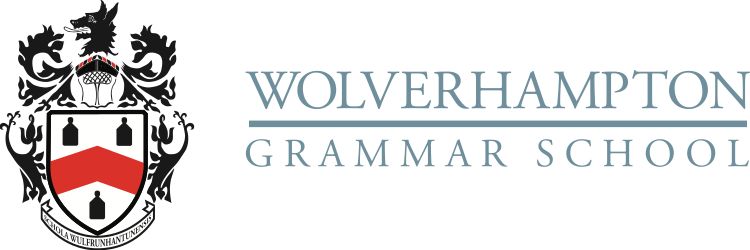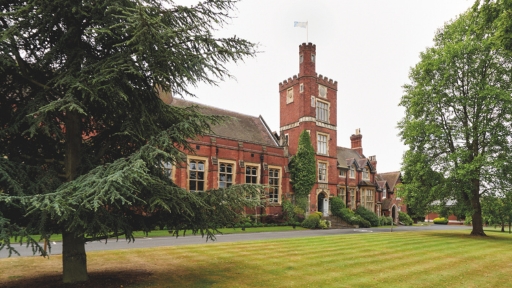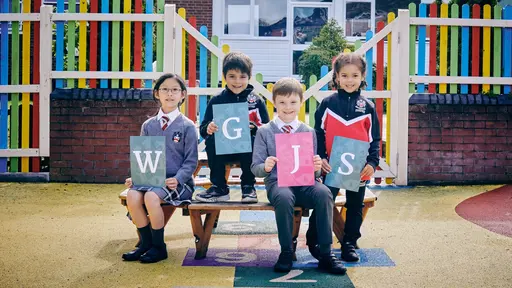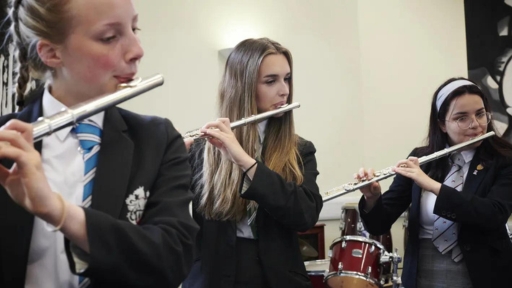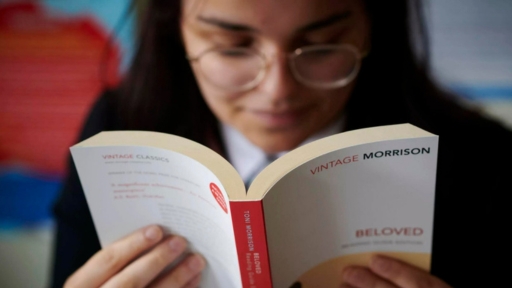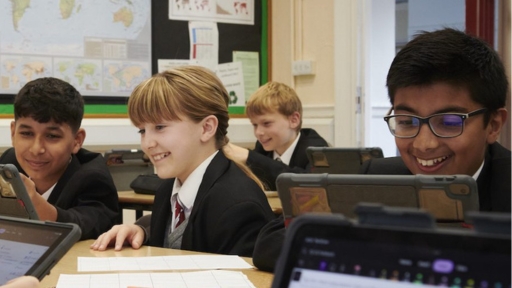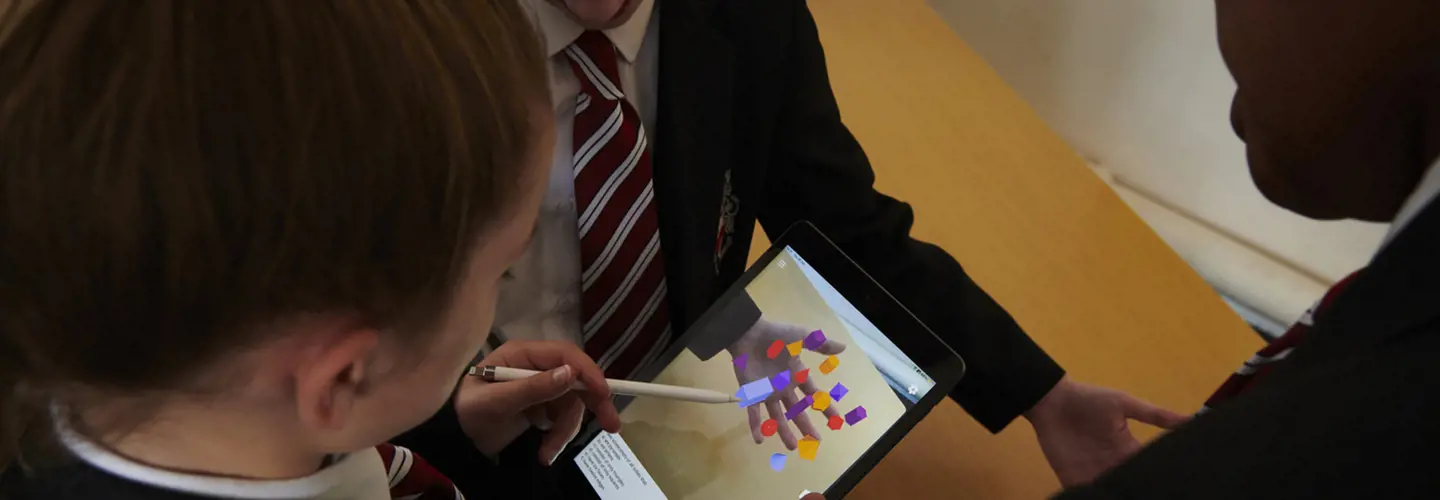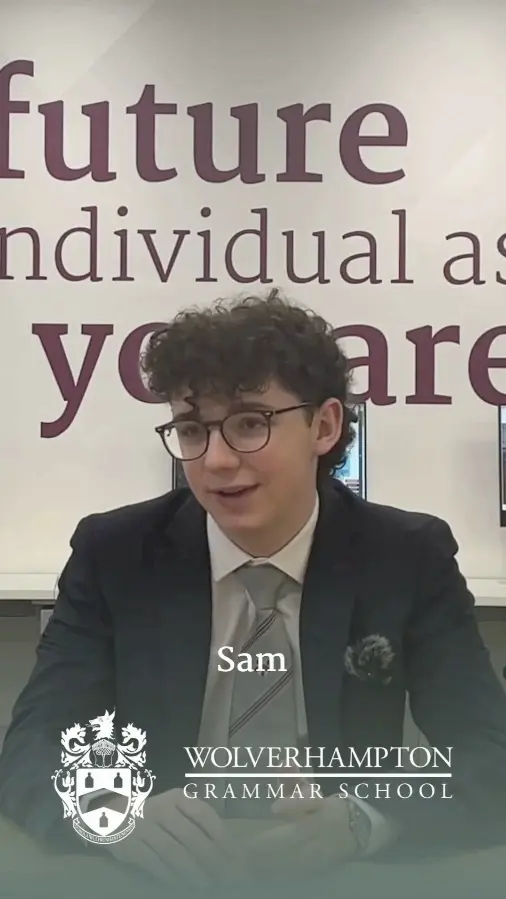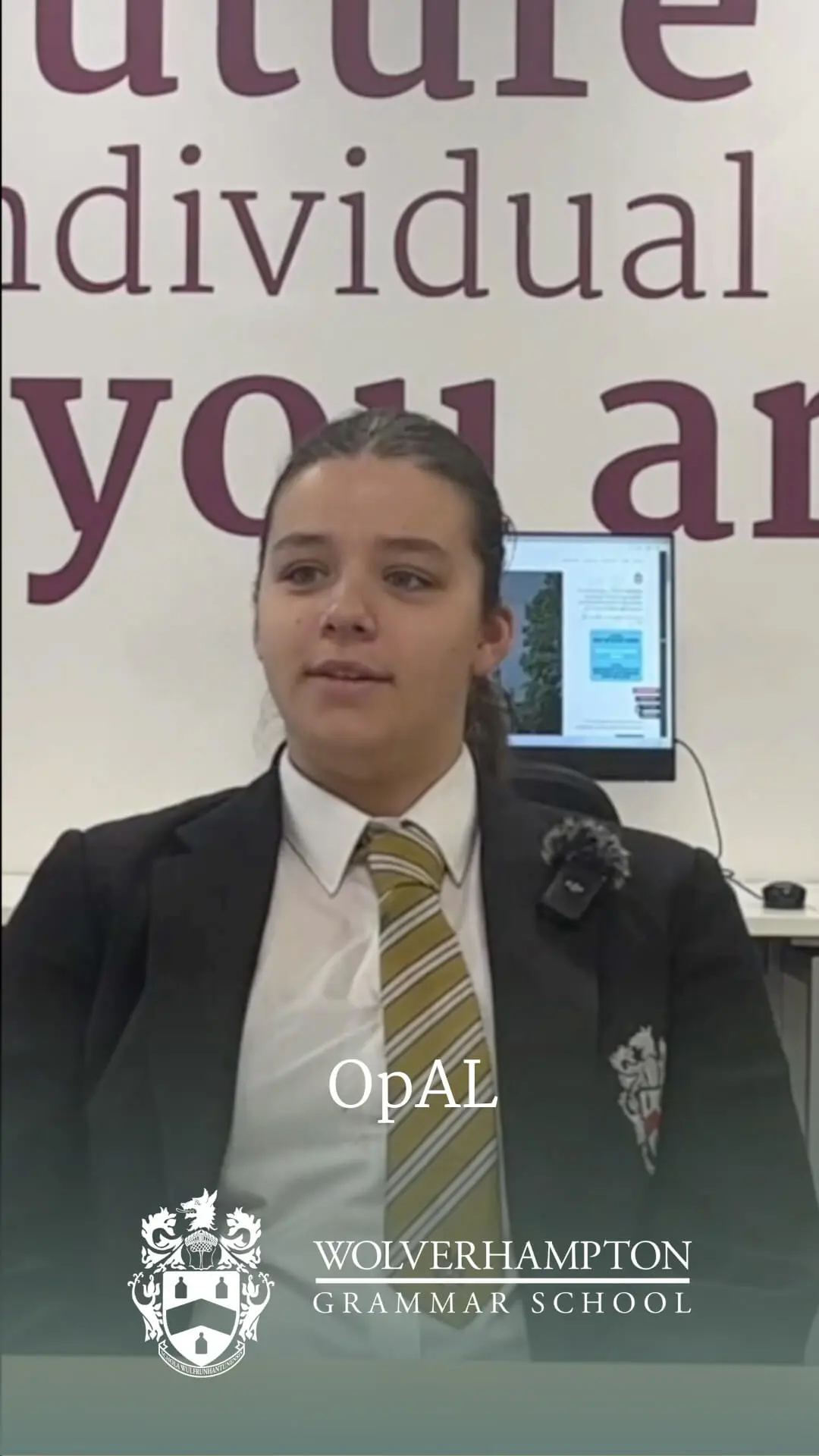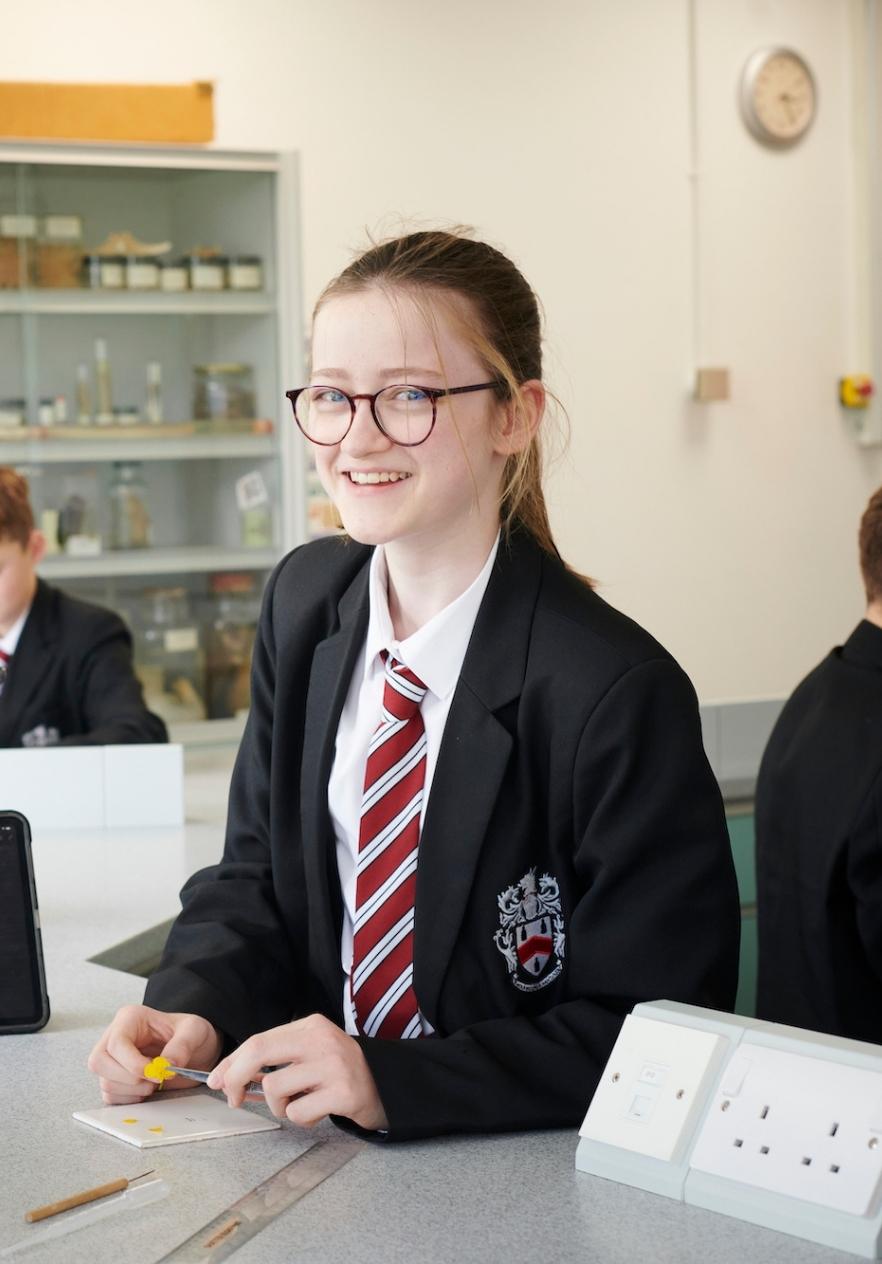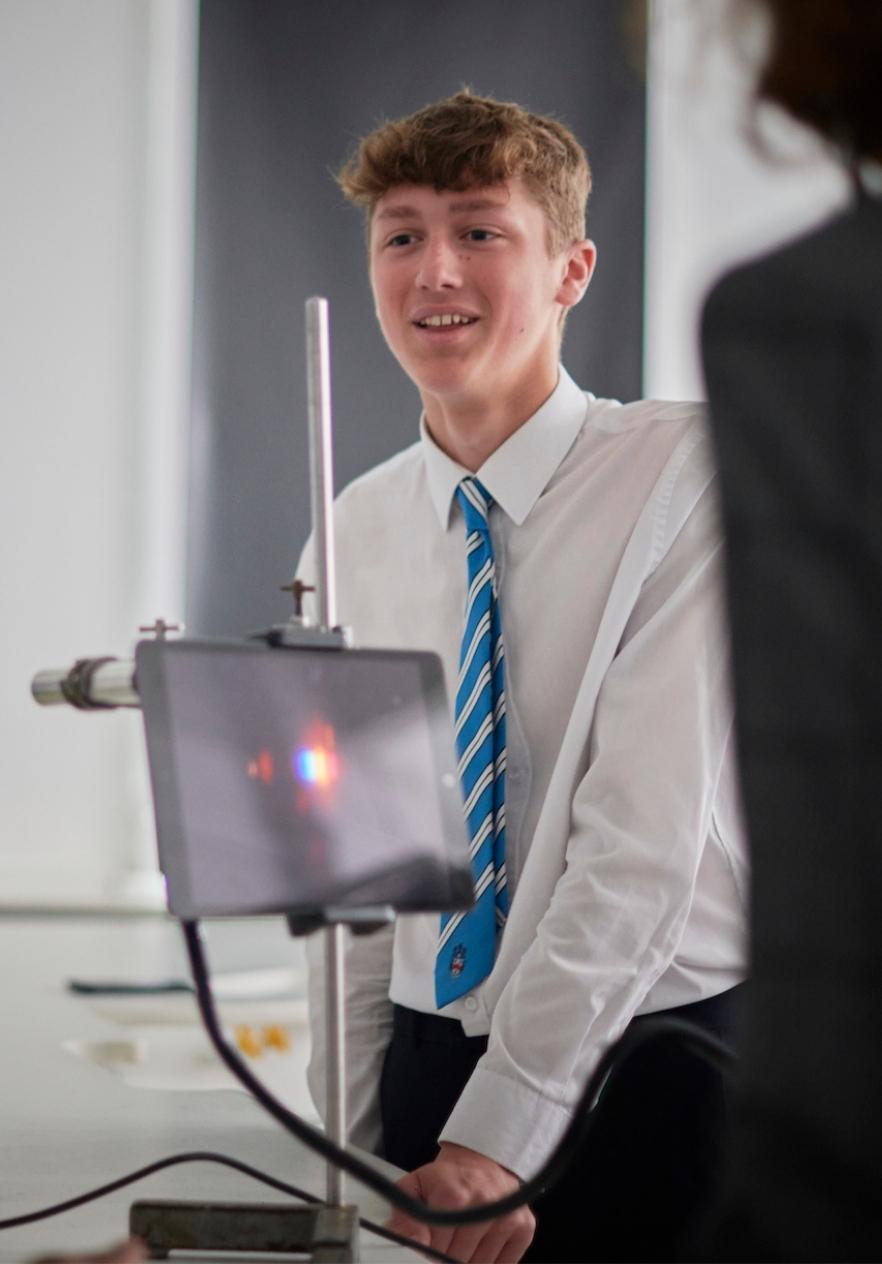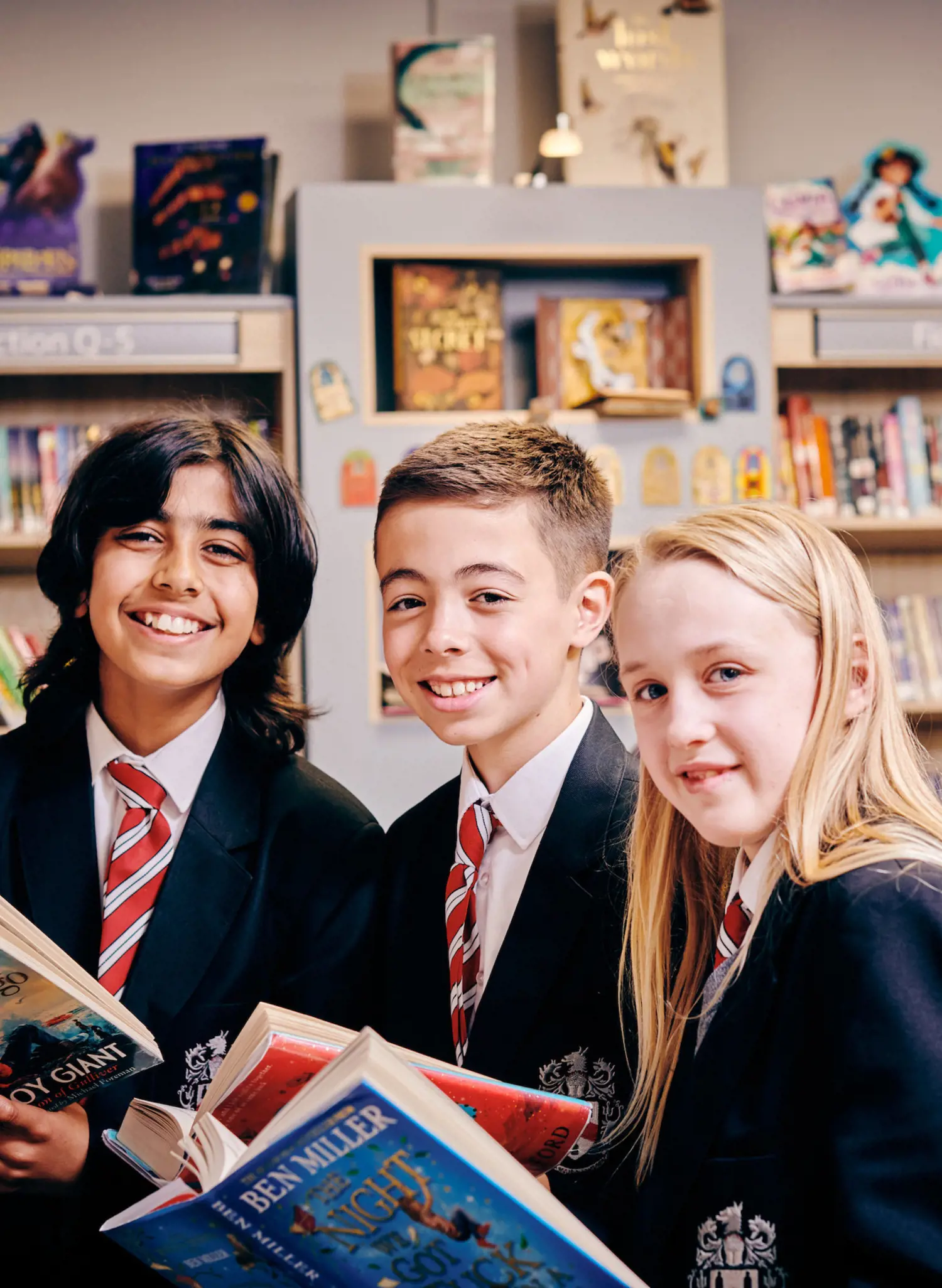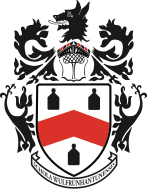A school with over 500 years of experience ensures your child is in safe hands.
OpAL
The Assisted Learning Department at Wolverhampton Grammar School is known as OpAL. This stands for Opportunities through Assisted Learning.
The OpAL department offers support to students for different reasons. This might include support with English and Maths skills, revision skills, course work, organisation, preparing for assessments or a quiet space to self-regulate.
Students enjoy coming to their OpAL lessons and value the support they receive. They work in small groups revisiting work from lessons or getting a head start, giving them confidence to succeed and opportunities to support each other. The setting for OpAL is particularly nice as lessons are based in the Learning Hub which is a bright an airy space conducive to good learning.
We have many students who have received support from the OpAL department and who have gone on to study at university before pursuing successful careers.
Appropriate and effective Teaching and Learning
WGS is a fully inclusive school. (Click here to read our Equal Opportunities Policy). Most of the school buildings are accessible to students with physical disabilities. There are ramps into every building with lifts in most where access to a second floor may be required. Each building also has an accessible toilet, and there are accessible changing facilities in the Sports Centre.
We ensure that equipment used is accessible to all students regardless of their needs. Students with additional needs participate fully in extra-curricular opportunities throughout their time at Wolverhampton Grammar School.
The school curriculum includes trips out to enrich pupil’s experiences. Our risk assessments are inclusive of SEND students and one-to-one adult support is provided, should this be required, to ensure that pupils with additional needs can take part.
We use a range of strategies to monitor the progress of students and to ensure that good teaching is in place for all pupils.
We offer support through some key interventions and the OpAL programme. We identify the students by looking closely at their progress and what we can do to support them. All students are initially screened on their entrance to the Senior School. Any students who score below average are screened further and interventions are put in place if they are identified as needing additional support.
Interventions we use to give students additional support are:
- Targeted small group or 1:1 intervention
- Focused Curriculum Support (OpAL)
- Word Wasp
- Cool Kids
- Handwriting
- Reading Support
- Word processing – Dance Mat
- Speech and Language (Black Sheep Press)
At WGS we make provision for pupils who have any needs in the following areas:
- Cognition and Learning - Children and young people who find learning, thinking and understanding harder than most other pupils.
- Communication and Interaction - Children and young people who find it difficult with interacting with the people and world around them.
- Social, emotional and mental health difficulties - Children and young people who find it difficult to manage their emotions and behaviour in a way that affects their daily life.
- Sensory and/or physical needs - Children and young people who have a disability that may make it difficult for them to manage their everyday life without changed or support. This may be because of hearing or visual difficulties, physical disabilities or other medical needs.
We know that some pupils will have difficulties in more than one of these areas and we will always do our best to meet their needs.
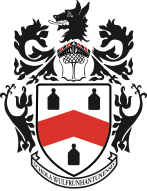
“Please keep up the most amazing work within your OpAL Department to allow children like our son, George, to become the very best version of themselves.”
Mr and Mrs Atkinson, OW 2022 Parents
Open and Honest Communication
If you have a concern about your child, please speak to Mrs Fellows, Head of ALN. We would always encourage you to speak to your Form Tutor and Head of Year or House, too.
- Speak to Main Reception to find out when they will be available or to make an appointment. Tel: 01902 421326.
- Email Mrs Fellows.
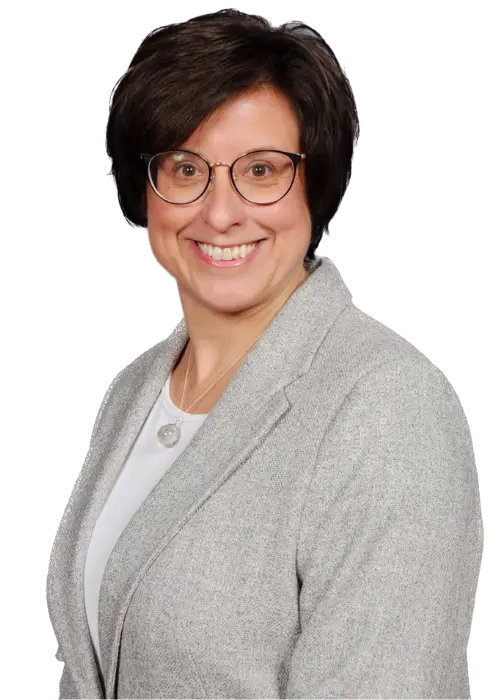
"Your child will receive the individualised support and education that they deserve at WGS"
ANNEMARIE FELLOWS, Head of ADDITIONAL LEARNING NEEDS (ALN)
Frequently Asked Questions
| Will the information that needs to be shared with me, be made clear and easy to understand? |
|---|
|
We will communicate regularly with parents through:
|
| If my child needs additional support, will I always be spoken to about this? |
|
If we are concerned about your child’s progress and feel that your child needs additional support, we will always speak to you about this. Your child’s Form Tutor will speak to you at Parents' Evening about the progress that your child has made, and you will be regularly updated through half-termly reports in the Senior School. If we feel that your child needs additional support or targets, we will discuss this with you. If concerns are raised by staff about your child’s progress or speed of working, and we want your child to take part in some additional screening, we will contact you about this. If your child has more complex needs, then we may review your child’s progress and needs as part of an Educational Health and Care Plan. This person-centred approach enables all agencies involved in your child’s care to work together to ensure that your child’s needs are met. At WGS, we operate an open-door policy. You can make an appointment to speak to your child’s Form Tutor or either SENCO at any point during the year. |
| How will the SENCO ensure the necessary people know about my child’s needs? |
|
Every pupil with additional needs in the Senior school has a Pupil Communication Profile. This is put together by students and their OpAL teacher at the beginning of each academic year. It details their strengths and weaknesses, and strategies to support the student in lessons. The Head of SEND, Mrs Fellows, and OpAL staff will ensure that all necessary information about your child’s needs are communicated to staff via their Pupil Communication Profile. A copy is kept on the school’s online system for teaching staff to access. The profile is reviewed regularly with your child, and any concerns are raised quickly within school via emails and a weekly staff briefing. When moving classes in school, information will be shared and discussed with the new class teacher in advance. If your child is moving to WGS from a different school, we will liaise with the previous school’s SENCO to find out as much information as possible about your child’s needs to ensure that these are immediately met. This will include any targets and paperwork or agencies which might have been involved in supporting your child. |
| How will my child’s progress be reviewed and when will I be invited into school to discuss this? Will my child be able to give their views? |
|
Your child’s progress will be continually monitored by their form tutor and subject teachers. In the Senior School, a half-term report will allow you to track your child’s progress in their chosen subjects. You will be invited into school for Parents Evening to discuss your child’s progress, and you are welcome to contact your child’s Form Tutor throughout the year to raise any concerns. Parents of pupils who access OpAL/Enhance lessons in KS3 and KS4, will be invited to make an online/telephone appointment with a member of the OpAL department to discuss their child’s progress. Your child’s views will also be listened to and form part of their Pupil Communication Profile, and they are invited to participate in an annual student survey. If your child is working below or significantly below the national expectation for their age, we will use an additional set of criteria to assess and identify gaps in their learning. Mrs Fellows works alongside all teachers throughout the academic year to gather evidence and identify any areas where extra support may be needed. This is reviewed regularly by the SENCO and form tutor or subject teacher as part of a four-part cycle: assess, plan, do, review. If your child needs additional support to help them make as much progress as possible, their curriculum may be modified so that they can receive support in the OpAL (Opportunities through Assisted Learning) department. Sometimes we work with outside agencies, such as the Wolverhampton Education Services and Educational Psychologists to support us in making our assessments. These agencies offer advice and help us to set targets. The progress of pupils with an Educational Health and Care Plan will be formally reviewed at an Annual Review with all adults involved in the child’s care and education. |

At WGS, we operate an open-door policy. You can make an appointment to speak to your child’s Form Tutor or either SENCO at any point during the year.
A Partnership Approach
| How is work differentiated at the right level to make sure my child makes good progress? |
|---|
|
We use a range of criteria and evidence to help us identify the level that students are working at. This helps teachers to plan work for all students to make progress, by making sure your child’s specific needs are met. We use the following to support children with additional needs to become independent learners:
|
| What types of learning resources are available for my child? |
|
A range of resources are available in all areas of the curriculum to support students learning at different levels and to ensure that they can access the curriculum. These are clear on subject teachers’ weekly planning and specific resources are identified on the student’s Pupil Communication Profile (e.g. coloured overlays, sloping desks, wobble cushions, ear defenders). |
| What resources does the school offer if my child has significant social and/or communication needs? |
|
Our Pupil Communication Profiles and One Page Profiles identify the types of needs a child may have and how to support them. For example, Autism, ADHD, cognition and learning. These are kept on the School’s online shared area which all teachers and cover teachers have access to. Miss Claudine Jones (Head of Pastoral), Heads of House/Year and Junior school Senior Leadership Team work closely with pupils and families to support their emotional, health and wellbeing. If your child needs additional support, one of the Heads of House/Year will contact you to discuss this and strategies that can be implemented. Heads of House/Year mentor students on a one-to-one basis. Students are able to access the school library at lunchtime club find they find it difficult to socialise outside. |
| What support is available if my child needs support with managing behaviour or dealing with social situations? |
|
At WGS we have a set of sanctions and rewards, as set out in our Behaviour Policy to encourage children to make the right choices. This is consistent across the school. (Click here to read the Behaviour Policy.) If your child needs additional support with managing behaviour or dealing with social situations, they may be put on a school report. This identifies their needs and the targets they are working towards. You will be informed if a school report needs to be put in place for your child. It will be discussed with you, shared with staff and reviewed regularly by the Head of House/Year. Miss Claudine Jones (Head of Pastoral), Heads of House/Year and Junior school Senior Leadership Team work closely with pupils and families to support their emotional, health and wellbeing. If your child needs additional support, one of the Heads of House/Year or Junior School Senior Leadership Team will contact you to discuss this and strategies that can be implemented. Students are able to access the school library at lunchtime club find they find it difficult to socialise outside. |
| How will the SENCO ask for my permission to involve other professionals to work with my child? |
|
WGS works with external agencies to help support specific needs. Examples of these are:
If these services request to work with your child, we will always consult you and request permission before the qualified professional works with your child. |
| How will my child be involved in decisions about their learning? |
|
Here are the things we do at WGS to make sure your child is listened to and involved in decision making:
|
Local Authority Support Services:
Specialist Learning Support
Tel: 01902 550609
Health Services
Speech and Language Therapy
Tel: 01902 444363
Social Services and voluntary organisations:
Child and Mental Health Services
Tel: 01902 444021
Parent Partnership
Tel: 01902 556945
